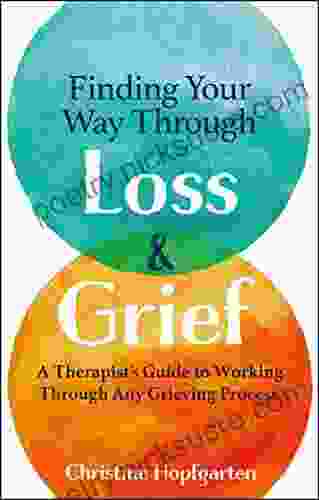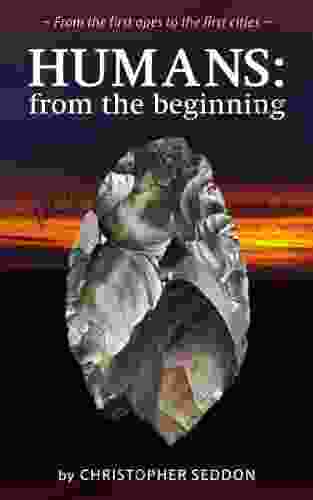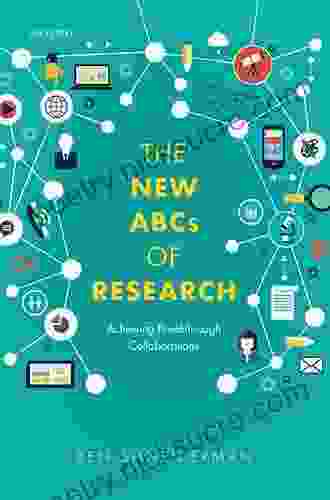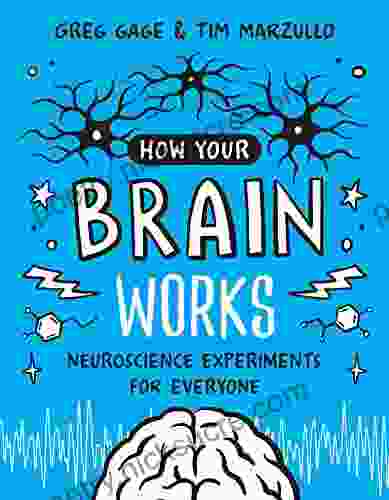From the First Apes to the First Cities: A Journey Through Human Evolution

The story of human evolution is one of the most captivating and complex narratives in the history of life on Earth. It is a tale of adaptation, innovation, and resilience, stretching back millions of years to the humble beginnings of our ape-like ancestors.
Over this vast expanse of time, our species has undergone a remarkable transformation, evolving from tree-dwelling primates to the dominant force on the planet. Along the way, we have developed language, culture, and technology, enabling us to create complex societies and reshape the world around us.
4.3 out of 5
| Language | : | English |
| File size | : | 8160 KB |
| Text-to-Speech | : | Enabled |
| Screen Reader | : | Supported |
| Enhanced typesetting | : | Enabled |
| Word Wise | : | Enabled |
| Print length | : | 567 pages |
| Lending | : | Enabled |
The Primate Roots of Humanity
The origins of the human family lie in the forests of Africa, where the first primates emerged around 60 million years ago. These early primates were small, arboreal creatures, adapted to life in the trees. Over time, they evolved larger brains and more flexible hands, which allowed them to explore new ecological niches.
One of the most significant milestones in human evolution occurred around 7 million years ago, when a group of primates known as Australopithecus began to walk upright. This adaptation freed up their hands for other tasks, such as carrying tools and weapons. It also allowed them to travel longer distances in search of food and resources.
The Emergence of Homo Sapiens
Around 2.5 million years ago, a new species of human emerged in Africa: Homo habilis. Homo habilis was the first hominid to make stone tools, a crucial innovation that allowed them to process food more efficiently and defend themselves against predators.
Over the next million years, Homo habilis evolved into Homo erectus, a more advanced species that spread throughout Africa, Asia, and Europe. Homo erectus was the first human to use fire, which provided warmth, protection, and a means to cook food.
The most recent chapter in the human evolutionary story began around 200,000 years ago with the emergence of Homo sapiens, our own species. Homo sapiens developed more complex language, culture, and technology than any previous hominid. They were also the first humans to migrate out of Africa and colonize the rest of the world.
The Development of Agriculture and Civilization
Around 10,000 years ago, a profound shift occurred in human history: the development of agriculture. Agriculture allowed humans to settle down in permanent settlements and produce their own food. This led to a population explosion and the emergence of complex societies.
The first civilizations arose in Mesopotamia, Egypt, and the Indus Valley around 3,500 years ago. These civilizations developed writing, mathematics, and complex political systems. They also built monumental structures, such as the pyramids of Giza and the Great Wall of China.
The Modern World and Beyond
Human evolution has continued at a rapid pace in the modern world. The Industrial Revolution, the development of computers, and the rise of globalization have transformed human society in ways that would have been unimaginable to our ancestors.
As we look to the future, it is impossible to predict what the next chapter in the human story will hold. However, one thing is certain: the journey of human evolution is far from over. We are a species with an extraordinary capacity for adaptation and innovation. As we continue to explore the frontiers of science and technology, we will undoubtedly shape our own evolution and the destiny of our planet.
The journey from the first apes to the first cities is a testament to the indomitable spirit of humanity. It is a story of innovation, resilience, and the relentless pursuit of knowledge and progress. As we continue to unravel the mysteries of our past and explore the possibilities of our future, we must never forget the incredible journey that brought us to where we are today.
4.3 out of 5
| Language | : | English |
| File size | : | 8160 KB |
| Text-to-Speech | : | Enabled |
| Screen Reader | : | Supported |
| Enhanced typesetting | : | Enabled |
| Word Wise | : | Enabled |
| Print length | : | 567 pages |
| Lending | : | Enabled |
Do you want to contribute by writing guest posts on this blog?
Please contact us and send us a resume of previous articles that you have written.
 Fiction
Fiction Non Fiction
Non Fiction Romance
Romance Mystery
Mystery Thriller
Thriller SciFi
SciFi Fantasy
Fantasy Horror
Horror Biography
Biography Selfhelp
Selfhelp Business
Business History
History Classics
Classics Poetry
Poetry Childrens
Childrens Young Adult
Young Adult Educational
Educational Cooking
Cooking Travel
Travel Lifestyle
Lifestyle Spirituality
Spirituality Health
Health Fitness
Fitness Technology
Technology Science
Science Arts
Arts Crafts
Crafts DIY
DIY Gardening
Gardening Petcare
Petcare Dorothy Ours
Dorothy Ours Vittal S Anantatmula
Vittal S Anantatmula Linda Lewis Alexander
Linda Lewis Alexander Neel Doshi
Neel Doshi David Soucie
David Soucie James C Zimring
James C Zimring Johnny Chuong
Johnny Chuong Daphne Poltz
Daphne Poltz Judy Corry
Judy Corry Christina Henry De Tessan
Christina Henry De Tessan Carl Mckeating
Carl Mckeating Quinn Loftis
Quinn Loftis Becky Wade
Becky Wade Christopher T Coughlin
Christopher T Coughlin Anna Ivey
Anna Ivey Marva Boatman
Marva Boatman Anna Wood
Anna Wood Ford R Bryan
Ford R Bryan Cb Droege
Cb Droege Neal Shusterman
Neal Shusterman Monroe Wildrose
Monroe Wildrose Jason
Jason Stacey A Shannon
Stacey A Shannon John Edwards
John Edwards Jack Perconte
Jack Perconte Matthew Rudy
Matthew Rudy Nisha Garg
Nisha Garg Matthew Locricchio
Matthew Locricchio Freddy Silva
Freddy Silva Hanumant Deshmukh
Hanumant Deshmukh Julie Creffield
Julie Creffield C J Brown
C J Brown Julian Of Norwich
Julian Of Norwich Walter Mischel
Walter Mischel Dave Canterbury
Dave Canterbury L Chapman
L Chapman Frances Schultz
Frances Schultz Junior Health Institute
Junior Health Institute Skeleton Steve
Skeleton Steve Buddy Lee
Buddy Lee Claire Walter
Claire Walter Zach Codings
Zach Codings Victor Stringer
Victor Stringer Joyce Meyer
Joyce Meyer Jay Spence
Jay Spence L J Martin
L J Martin Melissa Mortenson
Melissa Mortenson Paul Bloom
Paul Bloom Holly Chism
Holly Chism Chase Hassen
Chase Hassen Kennedy Achille
Kennedy Achille Illustrated Edition Kindle Edition
Illustrated Edition Kindle Edition Pradeepa Narayanaswamy
Pradeepa Narayanaswamy Mishka Shubaly
Mishka Shubaly Jacqueline Winslow
Jacqueline Winslow Roy M Wallack
Roy M Wallack Hope Comerford
Hope Comerford Charles J Sanders
Charles J Sanders Philip Reed
Philip Reed Joshua Shifrin
Joshua Shifrin Lily Dunn
Lily Dunn John Pullen
John Pullen Angela Saini
Angela Saini Dean Buonomano
Dean Buonomano Sparknotes
Sparknotes Ann Voskamp
Ann Voskamp Robby Weber
Robby Weber Robert A Cook
Robert A Cook Sean Covey
Sean Covey Julie A Ross
Julie A Ross Jonathan Pd Buckley
Jonathan Pd Buckley Mikael Lindnord
Mikael Lindnord Susan Spicer
Susan Spicer Gemma Bray
Gemma Bray John Dickson
John Dickson Louise Katz
Louise Katz Hill Harper
Hill Harper Sukhveer Singh
Sukhveer Singh Paul Mendelson
Paul Mendelson John Gignilliat
John Gignilliat David Woods
David Woods Dante Fortson
Dante Fortson Peter Hathaway Capstick
Peter Hathaway Capstick Mark Mckinney
Mark Mckinney Bren Smith
Bren Smith Susan G Solomon
Susan G Solomon Shawn Shallow
Shawn Shallow Silvia M Lindtner
Silvia M Lindtner Shelley Emling
Shelley Emling Gill James
Gill James Bob Labbe
Bob Labbe Eddie Jones
Eddie Jones Christine Hopfgarten
Christine Hopfgarten Richard Mcafee
Richard Mcafee Shannon Vallor
Shannon Vallor Jenn Bennett
Jenn Bennett Suzanne I Barchers
Suzanne I Barchers Kristian Berg
Kristian Berg Mordecai Orimiladeye
Mordecai Orimiladeye Patricia Ladis
Patricia Ladis Ellen Painter Dollar
Ellen Painter Dollar H M Schey
H M Schey Joey Myers
Joey Myers Craig Ramsay
Craig Ramsay Harold Davis
Harold Davis Sean Purchase
Sean Purchase Jonathan R Brennan
Jonathan R Brennan Melvin Fitting
Melvin Fitting Mary E Pearson
Mary E Pearson W W Sawyer
W W Sawyer G Norman Lippert
G Norman Lippert Sandy Camillo
Sandy Camillo Creative Guy
Creative Guy Sara Wickham
Sara Wickham Breeda Bermingham
Breeda Bermingham Katie Krimer Ma Lcsw
Katie Krimer Ma Lcsw Lily Siou
Lily Siou Geoff Greig
Geoff Greig Joy Dawson
Joy Dawson Dana James
Dana James Harley Mcallister
Harley Mcallister Stefanie Japel
Stefanie Japel Isaac Fitzsimons
Isaac Fitzsimons Jeff Kuehl
Jeff Kuehl Roy R Grinker
Roy R Grinker Chris Bailey
Chris Bailey Good Books
Good Books Anne Sylvie Malbrancke
Anne Sylvie Malbrancke Seth Stephens Davidowitz
Seth Stephens Davidowitz Christopher Seddon
Christopher Seddon Sam Demas
Sam Demas Nancy Marie White
Nancy Marie White Lisa Randall
Lisa Randall Sally Black
Sally Black Zach Hunter
Zach Hunter Suzanne Girard Eberle
Suzanne Girard Eberle John Dunn
John Dunn Ruby Mcconnell
Ruby Mcconnell Sajni Patel
Sajni Patel Larry Semento
Larry Semento Susan Straub
Susan Straub Stacey Williams
Stacey Williams Henry Dillon
Henry Dillon Stefan Hollos
Stefan Hollos Kristen L Mauk
Kristen L Mauk Richard A Ruth
Richard A Ruth John Van Wyhe
John Van Wyhe Maggie Downs
Maggie Downs Ling Seto
Ling Seto Cathy Glass
Cathy Glass Ann Zaprazny
Ann Zaprazny Justine Gregory Williams
Justine Gregory Williams Steven G Krantz
Steven G Krantz Jean Barbre
Jean Barbre Jennifer Kostick
Jennifer Kostick Martin Meredith
Martin Meredith Tony Osgood
Tony Osgood Annabel Streets
Annabel Streets Malcolm S Thaler
Malcolm S Thaler Peyton Curley
Peyton Curley Steven Yellin
Steven Yellin Sean Bartram
Sean Bartram Randall Fitzgerald
Randall Fitzgerald Barb Musick
Barb Musick Helge Kragh
Helge Kragh Jenna Evans Welch
Jenna Evans Welch Ann Valett
Ann Valett Jessa Stone
Jessa Stone Josephine Mccarthy
Josephine Mccarthy Harnarayan Singh
Harnarayan Singh Robert Gerver
Robert Gerver Krista Marson
Krista Marson Pierluigi Barrotta
Pierluigi Barrotta Julie Plagens
Julie Plagens L J Smith
L J Smith Robert A Conover
Robert A Conover Paulo Guillobel
Paulo Guillobel Barry Dainton
Barry Dainton Damian Hall
Damian Hall Lina Beard
Lina Beard Kass Morgan
Kass Morgan Christelle Dabos
Christelle Dabos Ian Moulding
Ian Moulding Dave Hall
Dave Hall Les Livingstone
Les Livingstone Hannah Testa
Hannah Testa Lizzie Collingham
Lizzie Collingham Dannah Gresh
Dannah Gresh Peter Richmond
Peter Richmond Reinhard Kleist
Reinhard Kleist Steve Newell
Steve Newell Jenny Jacobs
Jenny Jacobs Michael Witwer
Michael Witwer Jacob Ward
Jacob Ward Arcturus Publishing
Arcturus Publishing Larry Thornberry
Larry Thornberry Heidi Kreider
Heidi Kreider Omari Bouknight
Omari Bouknight Crystal Cook
Crystal Cook Ralph Waldo Emerson
Ralph Waldo Emerson William Goldman
William Goldman Adele Faber
Adele Faber Michael Labossiere
Michael Labossiere Will Kurt
Will Kurt Paul Logothetis
Paul Logothetis C W Farnsworth
C W Farnsworth Richard C Schwartz
Richard C Schwartz Luke Schumacher
Luke Schumacher J Scott Long
J Scott Long Ann Marie Brown
Ann Marie Brown Alexander L Chapman
Alexander L Chapman John O Sullivan
John O Sullivan George Lakoff
George Lakoff Thomas A Garrity
Thomas A Garrity Steve Schwartz
Steve Schwartz Scott Allan
Scott Allan Frank Thomas
Frank Thomas Ralph Cockburn
Ralph Cockburn Timothy Ellis
Timothy Ellis Miley Smiley
Miley Smiley Finn Aagaard
Finn Aagaard John Baichtal
John Baichtal Helen E Lees
Helen E Lees Fumio Sasaki
Fumio Sasaki Randy J Paterson
Randy J Paterson Mike Reilly
Mike Reilly Chris Fregly
Chris Fregly Julia Galef
Julia Galef Bella Forrest
Bella Forrest Eric Greitens
Eric Greitens Trevor Hartman
Trevor Hartman Wendy Leo Smith
Wendy Leo Smith Anna Quindlen
Anna Quindlen Susan M Schneider
Susan M Schneider Steve Olson
Steve Olson Stephanie Cave
Stephanie Cave Dan Vogel
Dan Vogel Sharman Apt Russell
Sharman Apt Russell Steven A Fino
Steven A Fino Horace Freeland Judson
Horace Freeland Judson Rutger Bregman
Rutger Bregman Daniel Isberner
Daniel Isberner James F Twyman
James F Twyman Jennifer L Lopez
Jennifer L Lopez John Murray
John Murray Sherry B Ortner
Sherry B Ortner Asker Jeukendrup
Asker Jeukendrup Margaret Paul
Margaret Paul Darryl Belfry
Darryl Belfry Dr Sarita Uhr
Dr Sarita Uhr Darcie Little Badger
Darcie Little Badger Patrick Torsell
Patrick Torsell Dan Koboldt
Dan Koboldt Winton Porter
Winton Porter Noel D Justice
Noel D Justice Rick Sparkman
Rick Sparkman Sheela Raja
Sheela Raja Dave Hughes
Dave Hughes Dr Harper
Dr Harper Illysa R Foster
Illysa R Foster Bert Mendelson
Bert Mendelson Lori L Tharps
Lori L Tharps Zena Hitz
Zena Hitz Valerie Hansen
Valerie Hansen Ray Moynihan
Ray Moynihan Sara Dyer
Sara Dyer David Berry
David Berry Caryl Phillips
Caryl Phillips Worley Faver
Worley Faver Julian Havil
Julian Havil Marjorie Savage
Marjorie Savage Aaron Mahnke
Aaron Mahnke Anna Lowenhaupt Tsing
Anna Lowenhaupt Tsing Earl Hipp
Earl Hipp Gloria Chadwick
Gloria Chadwick Zoe Moore
Zoe Moore Margaret Rogerson
Margaret Rogerson Bruce Lockwood
Bruce Lockwood Margaret Jean Langstaff
Margaret Jean Langstaff Kathy Morey
Kathy Morey Stan Gibilisco
Stan Gibilisco Joanna Wells
Joanna Wells H Jerome Chapman
H Jerome Chapman Bob Madgic
Bob Madgic Peter Wacht
Peter Wacht Cade Courtley
Cade Courtley George James Grinnell
George James Grinnell Steve Grant
Steve Grant Livia Bitton Jackson
Livia Bitton Jackson Eleanor J Sullivan
Eleanor J Sullivan Sarah Stodola
Sarah Stodola Sandy Bodeau
Sandy Bodeau Charles Dickens
Charles Dickens Ben Shneiderman
Ben Shneiderman Glen E Clarke
Glen E Clarke Louis Van Dyke
Louis Van Dyke Michael Hodgson
Michael Hodgson Guy Windsor
Guy Windsor Steven Callahan
Steven Callahan Steven Munatones
Steven Munatones Barbara Sealock
Barbara Sealock Kendall Coyne
Kendall Coyne Michael Tan
Michael Tan Anna Watson
Anna Watson Anna B Doe
Anna B Doe Ariel Dalfen
Ariel Dalfen Lane Demas
Lane Demas Maya Van Wagenen
Maya Van Wagenen Peter L Falkingham
Peter L Falkingham James Burke
James Burke Joe Hyams
Joe Hyams Julie C Meloni
Julie C Meloni Scott P Sells
Scott P Sells Brian Daccord
Brian Daccord Ken Robinson
Ken Robinson Rick Page
Rick Page Bethany Saltman
Bethany Saltman Douglas Perry
Douglas Perry Anna Crowley Redding
Anna Crowley Redding Steve Oldenburg
Steve Oldenburg Lisa Manterfield
Lisa Manterfield Stephen J Pyne
Stephen J Pyne Tarani Chandola
Tarani Chandola Jill Lepore
Jill Lepore Matthew Cobb
Matthew Cobb Emily J Taylor
Emily J Taylor Kyung Won Chung
Kyung Won Chung Morton Manus
Morton Manus Tim Cahill
Tim Cahill Nelson Dellis
Nelson Dellis James P Sethna
James P Sethna Michael G Manning
Michael G Manning Graham Robb
Graham Robb M Terese Verklan
M Terese Verklan Wayne C Booth
Wayne C Booth Genevieve Mckay
Genevieve Mckay Melanie Dickerson
Melanie Dickerson P M Gilbert
P M Gilbert Peter Watson
Peter Watson Chic Scott
Chic Scott Stephen Tarsitano
Stephen Tarsitano The Pinnacle Review
The Pinnacle Review John Yates
John Yates Todd Denault
Todd Denault Charlene Beswick
Charlene Beswick Jay Allan
Jay Allan Mark Matlock
Mark Matlock Pawel Malczewski
Pawel Malczewski Karen Bassie Sweet
Karen Bassie Sweet Tali Sharot
Tali Sharot Mike Roberts
Mike Roberts Sally Annjanece Stevens
Sally Annjanece Stevens Boye Lafayette De Mente
Boye Lafayette De Mente Tim Young
Tim Young Richard A Swanson
Richard A Swanson Jackson Carter
Jackson Carter M Shawn Copeland
M Shawn Copeland Rebecca A Moyes
Rebecca A Moyes College Hippo
College Hippo Vladimir Vasiliev
Vladimir Vasiliev Gilbert J Grant Md
Gilbert J Grant Md Katharine Beals
Katharine Beals Horace Kephart
Horace Kephart Alex Bromley
Alex Bromley Dan Gardner
Dan Gardner Bob Cary
Bob Cary Linda K Miller
Linda K Miller Marie Cirano
Marie Cirano Jemar Tisby
Jemar Tisby Patricia Romanowski Bashe
Patricia Romanowski Bashe Martin N Seif
Martin N Seif June Hur
June Hur Oskar Morgenstern
Oskar Morgenstern Geryn Childress
Geryn Childress Helen Adrienne
Helen Adrienne Scott Shupe
Scott Shupe Chris Gore
Chris Gore Nicholas Clapp
Nicholas Clapp Robin Esrock
Robin Esrock Jonathan Franklin
Jonathan Franklin Elizabeth Wissner Gross
Elizabeth Wissner Gross Antonio Robert
Antonio Robert Todd Radom
Todd Radom William P Young
William P Young R K Agarwal
R K Agarwal Nicholas Thomas
Nicholas Thomas Annaka Harris
Annaka Harris J E Esslemont
J E Esslemont James C Scott
James C Scott Philip Gibson
Philip Gibson Tanmay Mehta
Tanmay Mehta Lexi Ryan
Lexi Ryan Naomi Tomky
Naomi Tomky Danny Jones
Danny Jones Timothy P Schultz
Timothy P Schultz Annette Burns
Annette Burns Ann Mccallum Staats
Ann Mccallum Staats Steve Bennett
Steve Bennett Elisabeth Haich
Elisabeth Haich Prime Hall
Prime Hall Roger Hall
Roger Hall L A Cotton
L A Cotton Suzanne Clark
Suzanne Clark Anna Della Subin
Anna Della Subin Laurie Varga
Laurie Varga Jennifer Dugan
Jennifer Dugan Howard Means
Howard Means Sharon Rowley
Sharon Rowley Christine Field
Christine Field Dave Whitlock
Dave Whitlock Kalman Samuels
Kalman Samuels R A Salvatore
R A Salvatore Emmett W Hines
Emmett W Hines Robert F Boszhardt
Robert F Boszhardt Gwen Mckee
Gwen Mckee Janine Marsh
Janine Marsh Barry Schwartz
Barry Schwartz Kristina Cowan
Kristina Cowan Gary Chapman
Gary Chapman Adil E Shamoo
Adil E Shamoo Holly Bourne
Holly Bourne Caroline Miller
Caroline Miller Fox Fisher
Fox Fisher Ellen Dugan
Ellen Dugan Sally Connolly
Sally Connolly Clive Scarff
Clive Scarff Michael F Nenes
Michael F Nenes Curtis Collins
Curtis Collins Rebecca Carroll
Rebecca Carroll Stuart Tomlinson
Stuart Tomlinson Richard Appleton
Richard Appleton Bernard Stiegler
Bernard Stiegler Zach Davis
Zach Davis Barak A Bassman
Barak A Bassman Kate Mcvaugh
Kate Mcvaugh Tyler Richards
Tyler Richards Michael Burnett
Michael Burnett Anna Flores Locke
Anna Flores Locke Jay Young
Jay Young Ray Eye
Ray Eye Tara Haelle
Tara Haelle Ichigo Takano
Ichigo Takano Annalyn Ng
Annalyn Ng E R Truitt
E R Truitt Anna Bright
Anna Bright Anna Grafl
Anna Grafl Steve Bowkett
Steve Bowkett Chronicle Books
Chronicle Books Jackie Bolen
Jackie Bolen Donna D Ignatavicius
Donna D Ignatavicius
Light bulbAdvertise smarter! Our strategic ad space ensures maximum exposure. Reserve your spot today!
 Louis HayesFollow ·2.9k
Louis HayesFollow ·2.9k J.R.R. TolkienFollow ·17.8k
J.R.R. TolkienFollow ·17.8k Allen GinsbergFollow ·15.4k
Allen GinsbergFollow ·15.4k Donovan CarterFollow ·19.4k
Donovan CarterFollow ·19.4k Morris CarterFollow ·6.5k
Morris CarterFollow ·6.5k Evan HayesFollow ·4.7k
Evan HayesFollow ·4.7k Clark CampbellFollow ·11k
Clark CampbellFollow ·11k Isaiah PowellFollow ·14.1k
Isaiah PowellFollow ·14.1k

 Aldous Huxley
Aldous HuxleyMorgenstern: A Classic Tale of True Love and High...
Morgenstern is a...

 Beau Carter
Beau CarterThe Oasis Guide to Asperger Syndrome
What is Asperger Syndrome? Asperger...

 Chadwick Powell
Chadwick PowellFinding Your Way Through Loss Grief: A Therapist S Guide...
Grief is a natural human emotion that we...
4.3 out of 5
| Language | : | English |
| File size | : | 8160 KB |
| Text-to-Speech | : | Enabled |
| Screen Reader | : | Supported |
| Enhanced typesetting | : | Enabled |
| Word Wise | : | Enabled |
| Print length | : | 567 pages |
| Lending | : | Enabled |


















